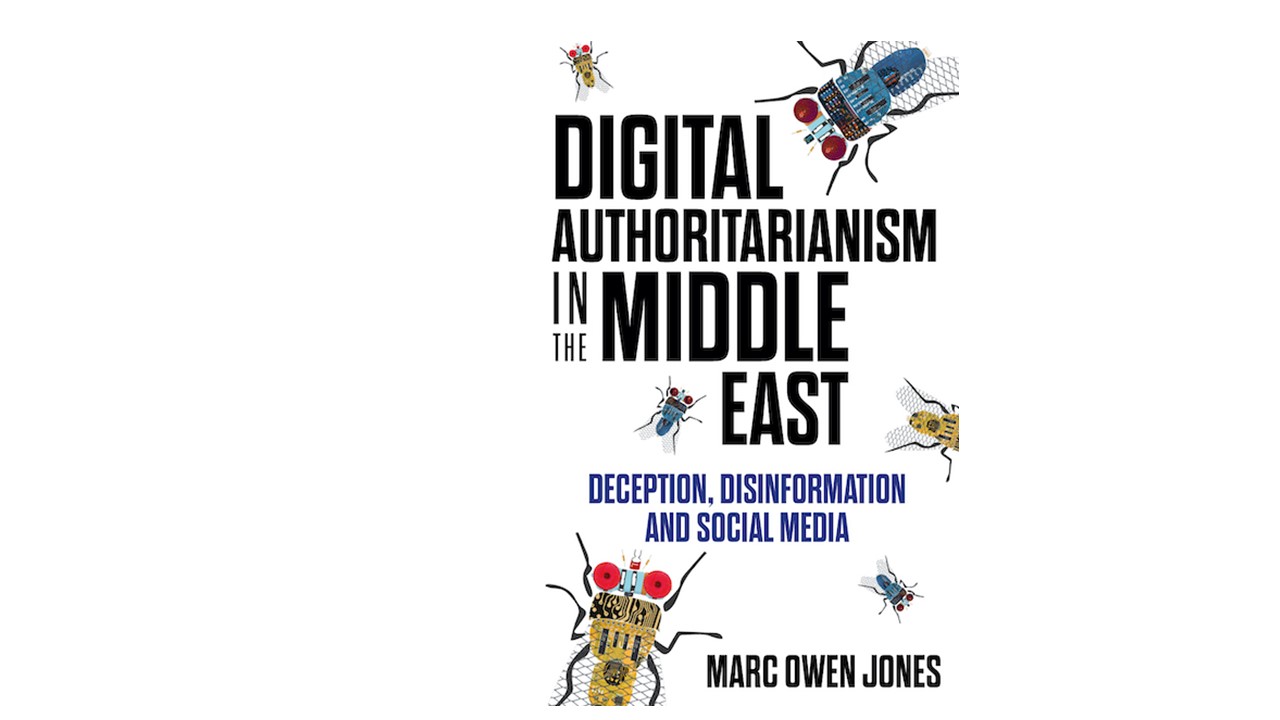
- 27 Jul 2022
[Book Talk] Digital Authoritarianism in the Middle East
(This event is organised by MEI DOI – Gulf research cluster.)
Disinformation can lead to indoctrination, which can in turn lead to incitement. The Arab world has been a victim of violence incited by an information disorder. Who wields the “stick” of (dis)information? Social media and digital technology, which helped fuel the Arab Spring, is now being used as a tool of counter-revolutionary repression to protect the authoritarian status quo across the MENA region, especially from perceived ‘Islamist’ threats and Iranian expansionism. Up until now the study of disinformation, which has tended to frame Russia and China as forces undermining Western security, has rarely examined the Middle East and Western-allied Gulf states.
In this webinar, Dr Marc Owen Jones will explain the chains of information operations in the Middle East, particularly the main projectors of digital media power in the Gulf Arab states. Describing a new era of Gulf politics as a “post-truth moment,” Dr Jones argues that digital technology has been employed in influence operations to the degree that right-wing American policy and foreign policy of Gulf states intertwine.
Dr Jones’ upcoming book, Digital Authoritarianism in the Middle East, will also address issues such as sportswashing, pseudo-reality industries, and the silencing of journalists and women. Join the Middle East Institute for this book talk with the author.
This public talk will be conducted online via Zoom on Wednesday, 27 July 2022, from 4.00 pm to 5.00 pm (SGT).
Photo Image: Book Cover of Digital Authoritarianism in the Middle East – Deception, Disinformation and Social Media
discount code for those ordering from Hurst website > OJONES25
Listen to the full event here:
Watch the full event here:
About the Speakers

Associate Professor of Middle East Studies & Digital Humanities
Hamad bin Khalifa University
[Moderator] Dr Clemens Chay
Research Fellow
Middle East Institute, NUS
Dr Marc Owen Jones is an Associate Professor of Middle East Studies at Hamad bin Khalifa University, where he lectures and researches on political repression and informational control strategies. He is also a Senior Fellow at the Doha-based Middle East Council on Global Affairs.
His recent work has focused on the way social media has been used to spread disinformation and fake news in the Middle East. In March 2019, he published ‘The Gulf Information War| Propaganda, Fake News, and Fake Trends: The Weaponization of Twitter Bots in the Gulf Crisis’, in the ‘International Journal of Communication’.
His upcoming book on ‘Digital Authoritarianism in the Middle East: Deception, Disinformation and Social Media’ will be published by Hurst Books and Oxford University Press in July 2022. His previous work has focused on political repression, including a monograph entitled ‘Political Repression in Bahrain’, released in July 2020 by Cambridge University Press.
Jones has won multiple awards for his work. Jones’ PhD thesis in Government and International Affairs from Durham University won the ‘2016 Best Thesis’ award from the Association for Gulf and Arabian Peninsula Studies (AGAPS). In 2021 he won the ‘UK alumni professional achievement’ award from the British Council in Qatar. Through the course of his career he has won several awards for teaching both at Exeter University and HBKU. He is the editor of numerous books on Bahrain and the Gulf, including Gulfization of the Arab World, published in 2018 by Gerlach Press.

[Moderator] Dr Clemens Chay is a research fellow at the National University of Singapore’s Middle East Institute. His research focuses on the history and politics of the Gulf states, with a particular emphasis on Kuwait, Oman and Qatar. At MEI he spearheads a public education series entitled “Bridging the Gulf”. His recent academic publications include a chapter that examines Kuwait’s parliamentary politics in The Routledge Handbook of Persian Gulf Politics (2020), a chapter in the edited volume Informal Politics in the Middle East (Hurst, 2021), and a study appearing in the Journal of Arabian Studies, titled “The Dīwāniyya Tradition in Modern Kuwait: An Interlinked Space and Practice.” His commentaries also feature across different outlets, including ISPI, KFCRIS, and AGSIW. He is currently working on a book project related to Kuwait’s diwaniyas (affectionately known as diwawin, and more widely known as majalis outside Kuwait), the reception rooms for informal meetings that have implications for society, politics and diplomacy.
Prior to joining MEI, Dr Chay was the Al-Sabah fellow at Durham University, where he taught and completed his PhD in Middle Eastern and Islamic studies, and where he also received an MSc in defence, development and diplomacy. He is also a Sciences Po Paris alumnus, having read his BA at the Menton campus.




